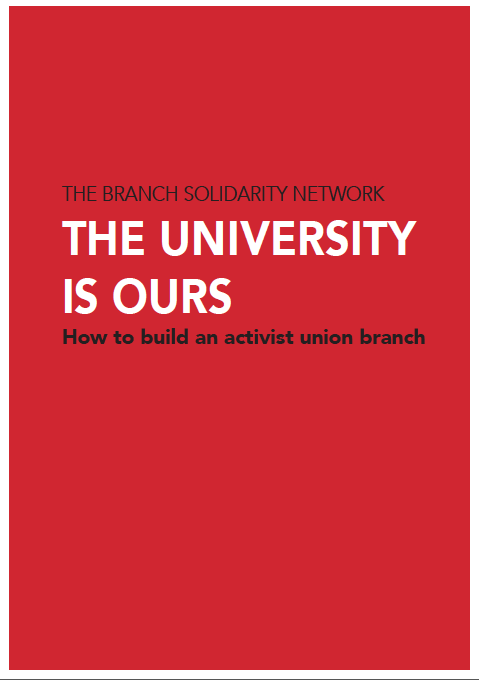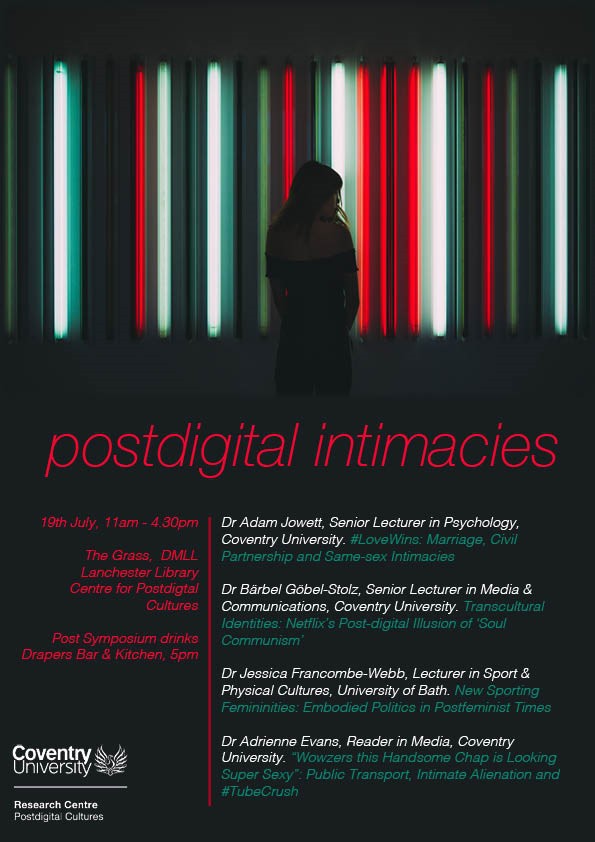Just over a week ago, I was interviewed by Chris Richardson for This Is Not A Pipe, a series of podcasts addressing issues in critical theory, cultural studies and philosophy. The episode, in which Chris and I discuss Pirate Philosophy, among other things, should be available online shortly. In the meantime, here is my response to the request Chris makes to each of his interviewees to provide 5 recommended readings to include on the website alongside the episode of the podcast in which they appear.
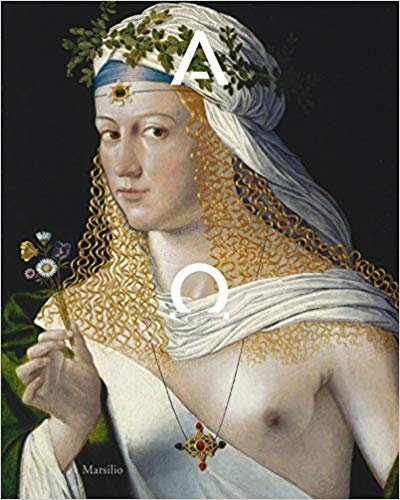 Aldo Manuzio: Renaissance in Venice, edited by Guido Beltramini and Davide Gasparotto (Venice: Marsilio, 2016)
Aldo Manuzio: Renaissance in Venice, edited by Guido Beltramini and Davide Gasparotto (Venice: Marsilio, 2016)
This is the catalogue of an exhibition held in Venice in 2016, five hundred years after the death of the scholar and publisher Aldo Manuzio. Recognized as the inventor of the modern book, Manuzio’s edition of Hypnerotomachia Poliphili, originally published in 1499, has been called the most beautiful volume ever printed. I don’t want to get into a beauty contest, but it’s definitely worth seeing if you ever get the chance. Gutenberg may have been the first to use the printing press and movable type in Europe, but it was Manuzio’s innovations in publishing that made print-on-paper books small and portable enough for individuals to read as part of their everyday lives. His invention of a new material form for the book in 1501 - clear layout, readable italic typeface, pocket-sized in the octavo format, making his volumes easy to hold with one hand - thus helped to create a reading public and, with it, the public sphere. It also paved the way for Cervantes’ invention, with the publication of the first volume of Don Quixote in 1605, of a new form of writing, the novel, and with it the modern world and subjectivity. All of which raises the question: what are the implications for subjectivity of the emergence, half a millennium later, of vast networked flows of information and data, of which projects such as This Is Not A Pipe and Media Gifts are of course a part?
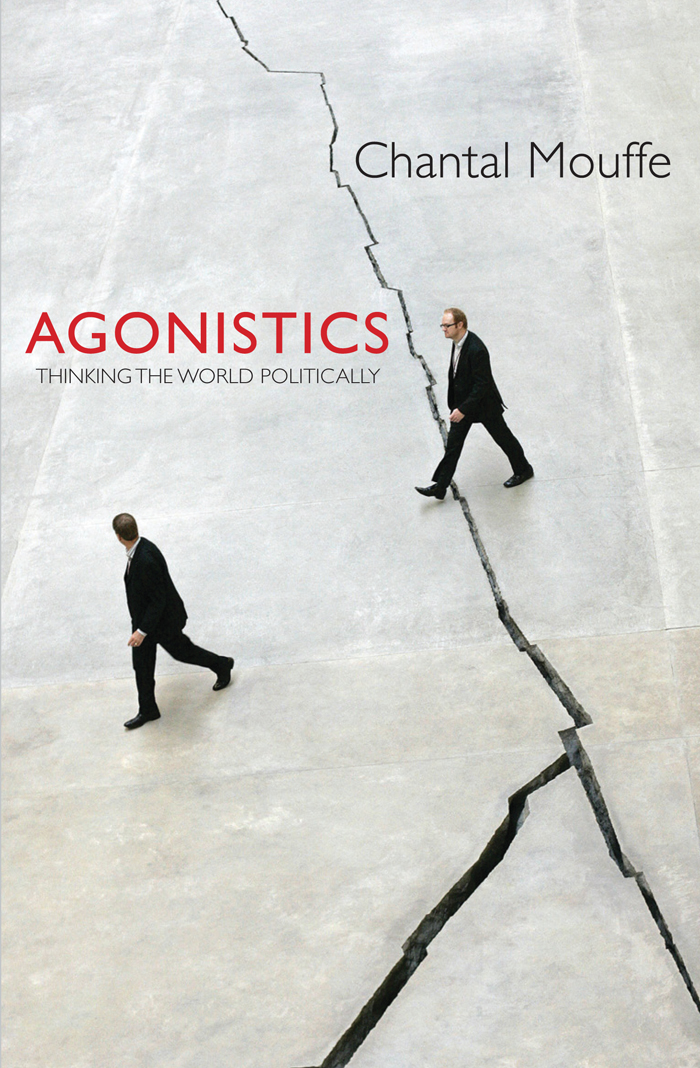 Chantal Mouffe, Agonistics: Thinking the World Politically (London: Verso, 2013)
Chantal Mouffe, Agonistics: Thinking the World Politically (London: Verso, 2013)
Staying with the question of subjectivity, I’m interested in the emphasis Mouffe places in this book (available to download for free if you look in the right places: see below), on the role artistic practices have to play when it comes to the production of new subjectivities – the latter being one of the objectives of counter-hegemonic struggle for her. That said, if art is one arena in which we can experiment with new identities and new agential practices, it seems to me critical theory is another: it just needs to be far less bourgeois and commercially-oriented than it is at present. To use her own political philosophy against itself, it’s a shame that Mouffe - in common with many other theorists today - doesn’t seem particularly interested in experimenting with her own subjectivity. Indeed, for all the importance she attaches to working collectively and agonistically with regard to the existing institutions, Mouffe’s theory remains quite conventional in its form and practice. Witness her insistence on writing singularly authored, long-form, codex print books that she then makes available for commercial exploitation by the for-profit press Verso an all rights reserved basis, in accordance with a system of property exchange that is governed by the logic of capital and its individualistic, competitive ethos. Mouffe may provide us with a powerful critique of liberalism in the content of her books. Yet as her upholding of common-sense notions of the sovereign human subject, the named proprietorial author, originality, immutability and copyright shows, she continues to adhere to a liberal humanist model of what it is to be an academic and theorist when it comes to how she actually creates, publishes and disseminates her radical political philosophy.
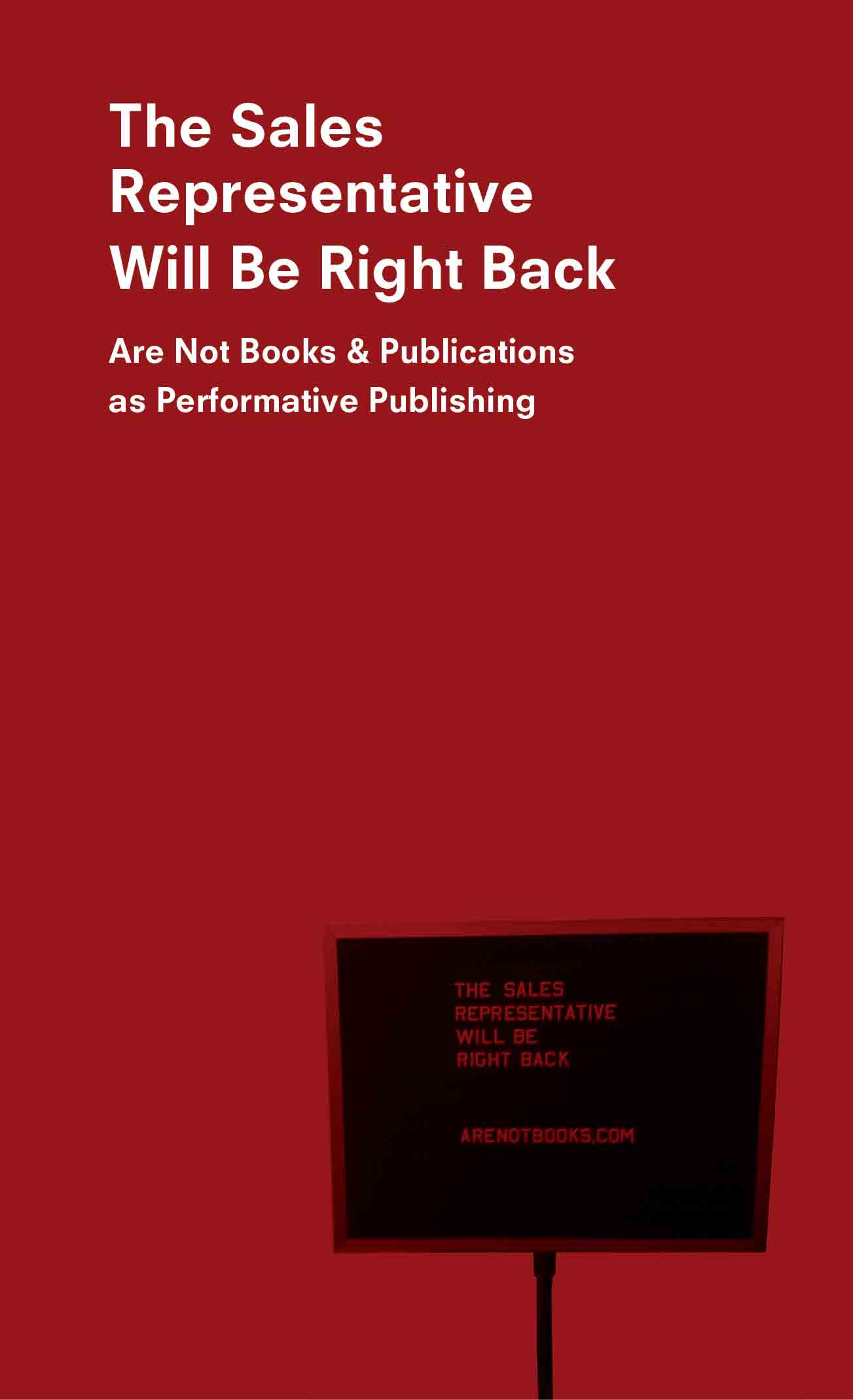 The Sales Rep Will Be Right Back: Are Not Books & Publications as Performative Publishing, or Notes on Productive Non-Documentation (Texas: Are Not Books & Publications, 2018)
The Sales Rep Will Be Right Back: Are Not Books & Publications as Performative Publishing, or Notes on Productive Non-Documentation (Texas: Are Not Books & Publications, 2018)
What alternative ways of working should we be exploring if we want to subvert the existing configurations of power and develop new subjectivities and new ways of life? The Radical Open Access Collective offers numerous examples of how we can engage agonistically, as Mouffe would put it, with those liberal democratic institutions through which most people come into contact with our work - the university, the library and scholarly publishing industry - in order to transform them and their associated practices, with a view to creating a chain of equivalence with other levels of struggle as part of a broader left political strategy. However, I want to place the emphasis here on a project I’m not associated with. So I’m recommending this volume from Are Not Books & Publications, a project that describes itself as both a publisher and an academic research program. The Sales Rep Will Be Right Back demonstrates how books can not only be descriptive but performative, right down to the level of the conferences and trade shows at which they’re exhibited… and given away, in the case of Are Not Books & Publications (which is how I came across them at the recent London Art Book Fair, held at the Whitechapel Gallery). When it comes to marketing their books, Are Not Books & Publications look to challenge the existing consensus by having as their goal ‘cultural transactions that are not based on competition, or the accumulation of capital’. Instead, they only care ‘about those who care’ and will take the time to seek them and their work out. Otherwise they prefer to ‘remain anonymous, and to acquire no reputation’.
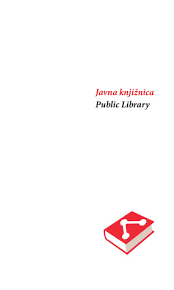 Tomislav Medak, Marcell Mars, Manar Zarroug, Paul Otlet, McKenzie Wark, Javna knjižnica/Public Library (Svibanj/Zagreb: Što, kako i za koga/What, How & for Whom, Multimedijalni institut/Multimedia Institute, 2015)
Tomislav Medak, Marcell Mars, Manar Zarroug, Paul Otlet, McKenzie Wark, Javna knjižnica/Public Library (Svibanj/Zagreb: Što, kako i za koga/What, How & for Whom, Multimedijalni institut/Multimedia Institute, 2015)
I would have like to have provided links to a multitude of ‘pirate’ or shadow libraries, such as aaaaarg.org, Monoskop and Library Genesis, as a means of offering further examples of projects that are not based on competition or the accumulation of capital. But perhaps I can compromise by choosing just one small book on the subject instead. Javna knjižnica/Public Library contains all the relevant information and urls. It’s published in a dual language edition (Croatian and English), and is freely available on an open access basis here. Marcell Mars and Tomislav Medak, the book’s two editors, themselves run a radical open access project of the same name: The Public Library. (Full disclosure: they’re also colleagues of mine in The Post Office postdigital arts and humanities research studio at Coventry University. Among other things, we’re working on reinventing the infrastructure of the city – including its public libraries - to produce a vision of the future that is less ‘smart’ and more multipolar and messy.)
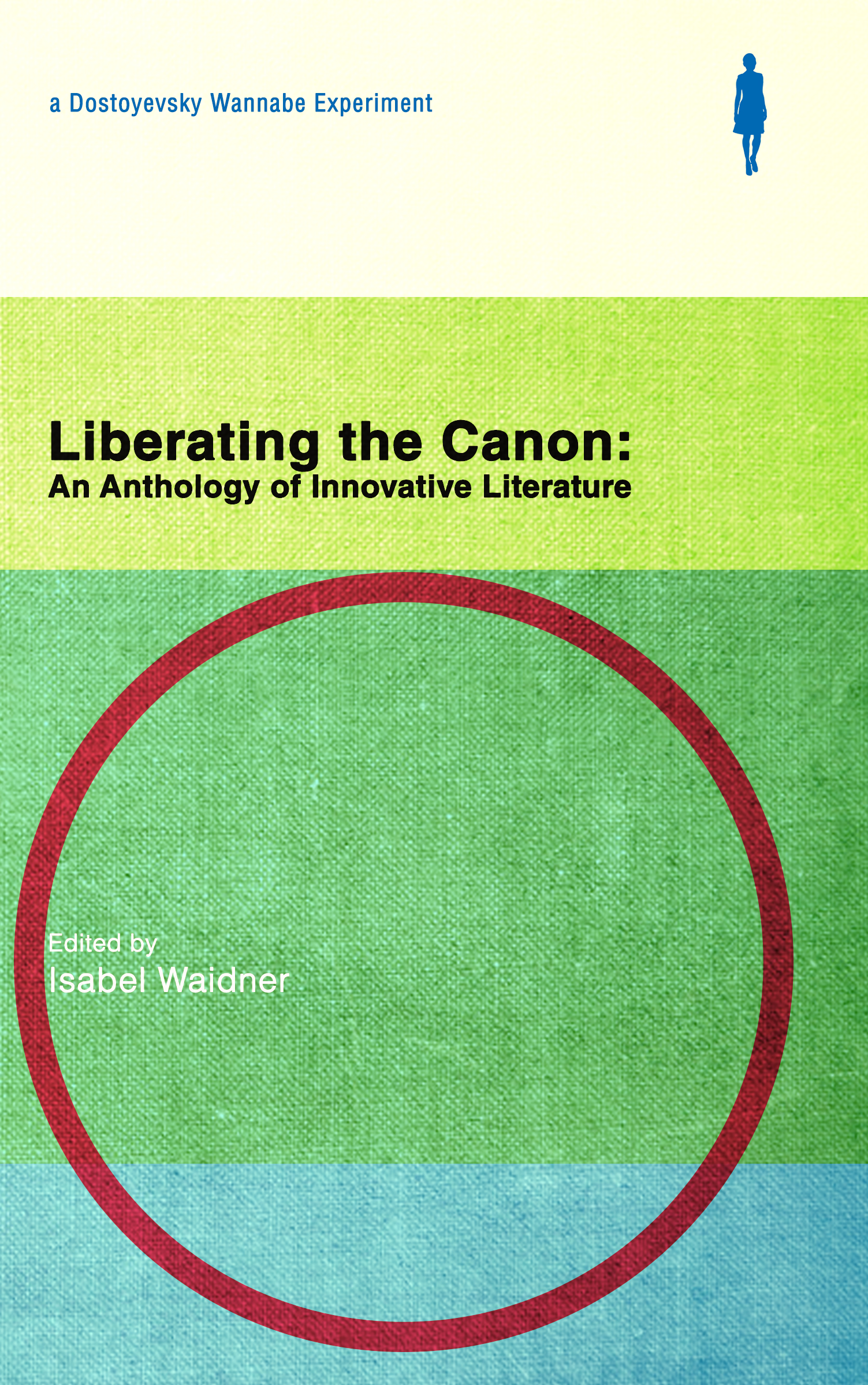 Liberating the Canon: An Anthology of Innovative Literature, edited by Isabel Waidner (Manchester: Dostoyevsky Wannabe Experimental, 2018)
Liberating the Canon: An Anthology of Innovative Literature, edited by Isabel Waidner (Manchester: Dostoyevsky Wannabe Experimental, 2018)
If art is one place critical theory can draw inspiration when it comes to the construction of new subjectivities, literature is another. Not so much the bourgeois novels of Jonathan Franzen and Karl Ove Knausgaard, perhaps; nor even the more experimental writing of Tom McCarthy and Will Self. In fact, in her introduction to Liberating the Canon (published with the non-profit Dostoyevsky Wannabe), Isabel Waidner stresses just how white, middle class and patriarchal most experimental literature is, certainly in the UK – very much to the exclusion of (non-Oxbridge) BAME, LGBTQI, working class, migrant and other nonconforming identities. This brings to mind a modest bid on the part of Cery Matthews to counter the stalling of social mobility in the UK. The BBC Radio 6 presenter recently announced that she wants to program less music on her show by artists who have been given a leg-up over others in society as a result of attending a private, fee-paying school, and more music by people from all walks of life, including women and those from working-class backgrounds. This makes me wonder: if we want to encourage the production of radical new subjectivities, do we need to adopt a similar stance with regard to literature and the arts? Critical theory and philosophy? Even the academy in general?
Waidner’s introduction, ‘Liberating the Canon: Intersectionality and Innovation in Literature’, is available open access here.
If you don't already know This Is Not A Pipe, you should check it out. There are episodes with Shannon Mattern and Tony D. Sampson among others, with Marie-Laure Ryan and Nick Sousanis coming up.
 Thursday, October 18, 2018 at 11:02AM
Thursday, October 18, 2018 at 11:02AM  Gary Hall | Comments Off |
Gary Hall | Comments Off | 






